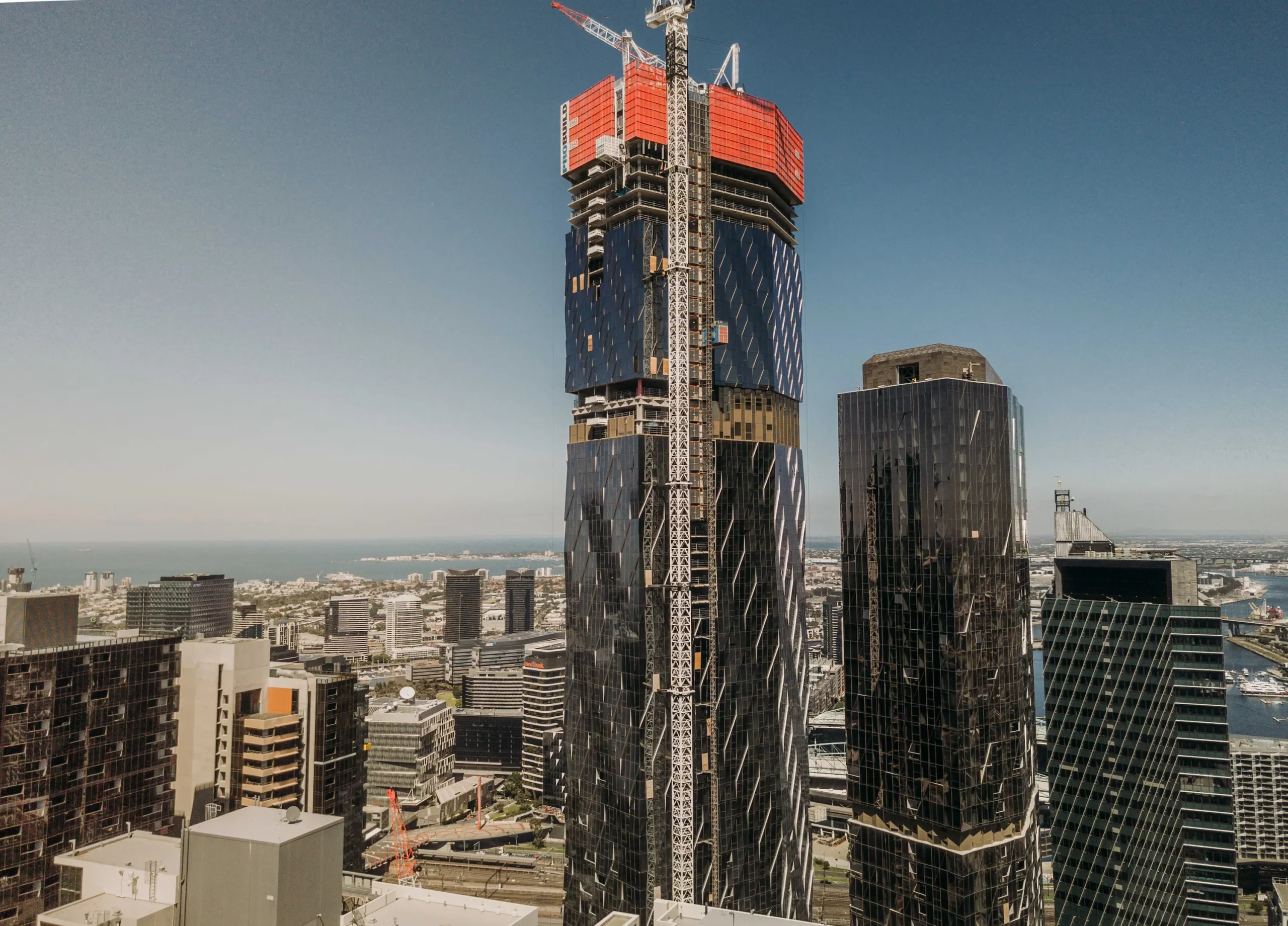

You can have all the salary data in the world, but actually knowing what you could be paid and then getting your employer to give it to you are two totally different things. So how do you get someone to pay you what you’re worth?
Here’s the 5 step success guide to salary negotiation in white collar construction.
- Define what you want (and what you don’t)
- Understand market demand
- Understand current market salary ranges
- Uncover your skill value
- Define what’s negotiable (and what’s not)
Getting paid what you’re worth is more than just finding out what the current salary ranges are and expecting to receive the right offer.
If you take the time to define what it is you want, and understand the salary range available to someone with your skills and experience, not only will you more likely ask for and then be offered the best salary, you’ll also be happier going to work every day.
Define what you want (and also what you don’t).
What’s your career plan? Where to from here?
Define your next step, as well as your next three after that, and then outline your 5 year plan. Nothing is set in stone, so don’t get caught up in trying to outline the perfect plan. You just need somewhere to aim because without a guiding star, you’re guaranteed not to arrive.
Think:
What sector/s do I want to work in?
Each sector of the construction industry will present different approaches that allow you to develop unique skills and specialisation. This applies to construction companies and in doing your research, you’ll find employers who specialise in your preferred sector/s.
Check out a full list here:
- Residential
- Commercial
- Aged Care
- Civil
- Mixed Use
- Community
- Education
- Medical/Health
- Data Centres
- Defence
- Industrial
- Government
- Heritage
- Hospitality & Entertainment
- Hotels
- Lifestyle
- Museums
- Recreation
- Stadium
- Student Accommodation
- Tourism & Leisure
- Retail
- Fit Out & Refurbishment
- Transport
What type of employer do I want to work for?
Consider things such as Tier level (project value), amount of staff, career opportunities, paid development, managerial levels, type of culture, values, growth, etc.
You may simply have a dream company that you want to work for, and you could model your trajectory to get there based on what that company looks like and the projects they’ve completed in the past.
How long does it normally take to reach the next level in my career ladder?
This will vary for each job role. For example, from Project Coordinator to Project Manager in takes on average 5 years, but varies across companies and tier level.
The higher you go up the ladder, the longer your time in your current role usually is. Smaller companies may not be a good fit for you if your dream is to become a construction manager within the same company. What could be good at a smaller company is to learn the ropes with your hands across multiple parts of the business: often you learn more in a shorter time period.
This is a good point to bring up in interviews and if the company has a focus on internal promotion, you can ask them to provide a specific example of how this has taken shape for an employee.
Is there something other than salary I want?
These are areas outside of financial compensation that motivate you on a daily basis. Would a 10 in 14 day roster suit you? Would RDOs be something that could sway you to join a business for an office based role? What types of benefits other than salary are important to you?
Once you’ve figured out what else could influence your decision, consider why these factors are so influential and use that to strengthen your approach to the job search.
Construction companies are continuously revising their fringe benefits to make themselves stand out in the market, and many will highlight these in the job description.
If these aren’t visible on Conecta, the company website or within the job description, this presents a great question to ask in your initial call or interview with the hiring manager.
Understand Current Market Salary Ranges
Here’s the latest Salary Trends for 2022 in our Construction Salary Guide.
Understand Market demand
Right now there’s an extreme shortage of good construction talent. It’s been dubbed “The War on Talent” and what it means is you have opportunities right now that wouldn’t have been open to you pre-Covid.
There’s high demand for:
- Project Coordinators
- Contract Administrators
- Estimators
- Project Managers
- Forepersons
- Site Supervisors
- Site Managers
Whereas previously employers were definitive with pre-requisites required to be considered for interview, now you’ll often be considered for roles with less years of experience, possibly less project value experience and even less sector experience. If you have skills that translate across to the new role and are a good fit for the vision, values & culture of the business, you’re in with a red hot chance.
Whilst this labour shortage puts you in a good position as a candidate, it’s only beneficial if you can effectively communicate your value to the employer (see how to uncover and articulate this below).
If you can prove your worth, you’ll command the highest salary the employer can afford to pay. Before you go to interviews, be sure to ask about the salary range so you don’t waste your time (or theirs) if your expectations are higher.

Understand current market salary ranges
Here’s the 2022_23 Conecta Construction Salary Guide.
Uncover your skill value
The thing we see most often (and which is the biggest issue for not getting the salary you want) is underselling yourself by not including EVERYTHING on your CV and Conecta Profile.
List everything you’ve done previously that could benefit a potential employer.
Things to consider:
- What sectors have you worked in?
- What project value have you worked on?
- What was different about the building you delivered?
- What programs have you used?
- What’s your management style and skill level – stakeholder internal and external.
Spell it out and don’t leave anything to interpretation.
If you’re not sure or you’d like expert assistance, speak with us directly. Email us at [email protected].
Don’t just list the day-to-day tasks. KPIs you’ve reached and significant achievements will show potential employers that you have skills beyond what’s listed in the job description. Be prepared to showcase your skills and experience to underpin your value in an interview.
Think of the landmark projects you’ve delivered in the past. What types of projects were they? It’s also key to communicate project value, as this signals to employers the types of projects you’re used to and could be suited to. What’s the highest value project you’ve delivered? Has this been consistent or has the average project value fluctuated?
Can your skills & experience translate across project sectors or do you need to work on the same types of project?
For example, your latest project was a residential valued at $10M, with a Tier 3 company. Can you use these skills to deliver a hospital project? Probably not. Can you use these skills to deliver an aged care facility? Maybe.
If the sector you’d like to work in doesn’t translate across from your past experience, the easiest way to transition is to work for a company that does both. Let them know what you’d like to do so they can make it happen. If you don’t ask, you don’t get and this goes for your current employer also. Don’t be disappointed if it’s not an option; it’s a win to save years working for someone who couldn’t support your dream career path.
Another option if you don’t possess the skills required for the role you want is reaching out to a past employer or a peer in the industry for some mentoring or guidance. Work your network and learn from people who’re currently or have previously been in the role you’d like to step into.
Define what’s negotiable (and what’s not)
This is important. What are you prepared to negotiate on? Being prepared with your negotiables before an interview ensures you don’t get side swiped by a good negotiator. It also means you give yourself a good amount of time to consider this.
What’s important? Can you negotiate work days for a higher salary? Or is higher salary negotiable if you get to spend more time with your kids, family or friends?
Is it more important to love your company’s culture and friday arvo drinks than it is to climb the construction ladder in the next 3 years?
Be sure to have this figured out before you meet with a potential employer. If you’re happy to be swayed, so be it. What you want to avoid, though, is taking a job because you were promised a good salary and company culture and then regretting it a month down the track because you caved on one of your other non-negotiables.
Conclusion
This is an unprecedented time in construction hiring where good construction talent is in control. BUT, if you want to be happy going to work, don’t just take the highest salary offered to you without considering what’s important to you first. Be clear on your negotiables and ask for what you want. Chances are you’ll get it if the employer believes what you can bring to the table is worthy enough.
Viewing and applying for the latest construction jobs is simple with a Conecta profile. Create yours and start building your dream career today.
Recent Jobs
Recommended posts


Recent Jobs
Download the 2023 Salary Guide
Over 20,000 construction professionals stay connected to industry with Conecta
